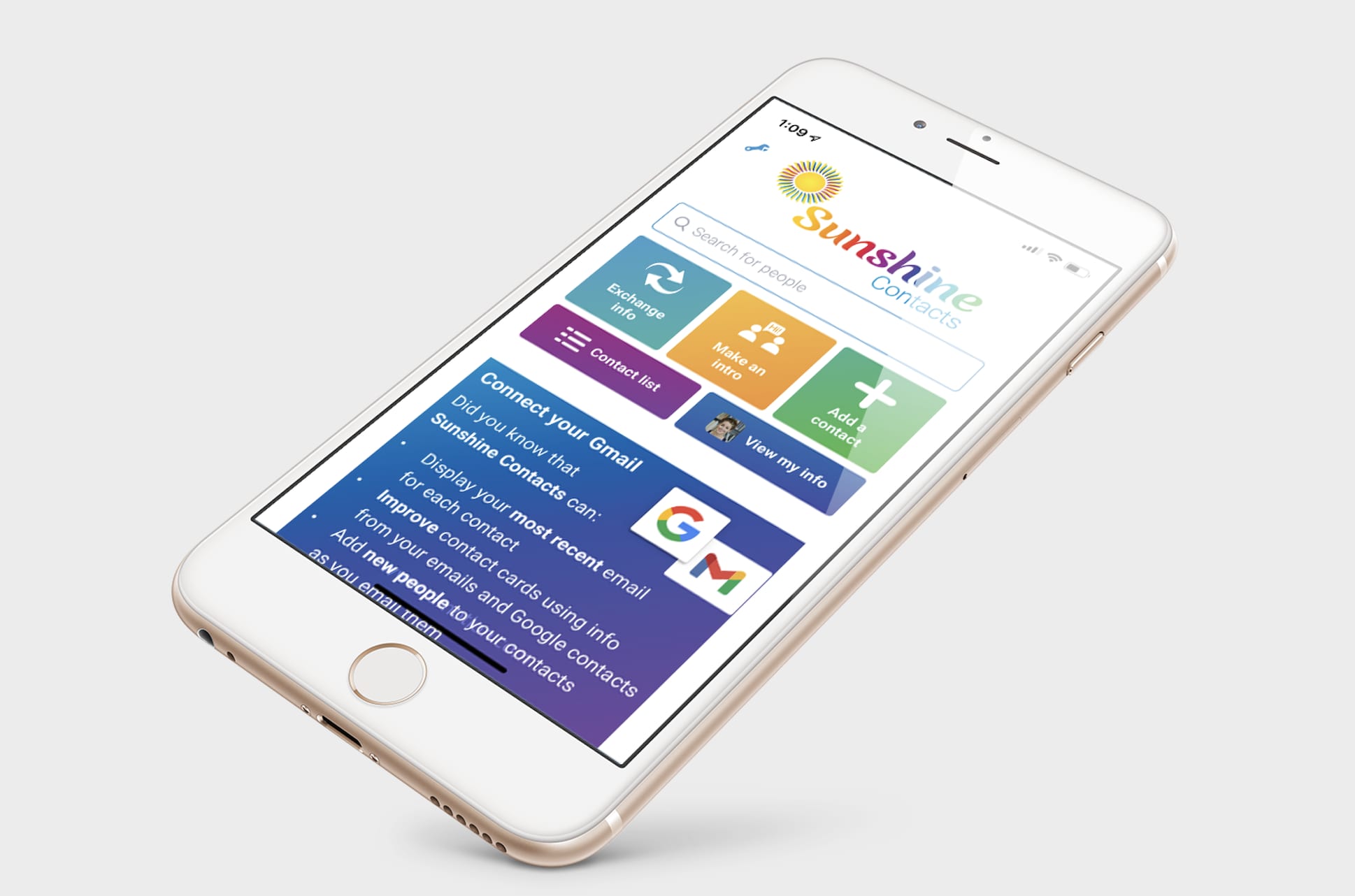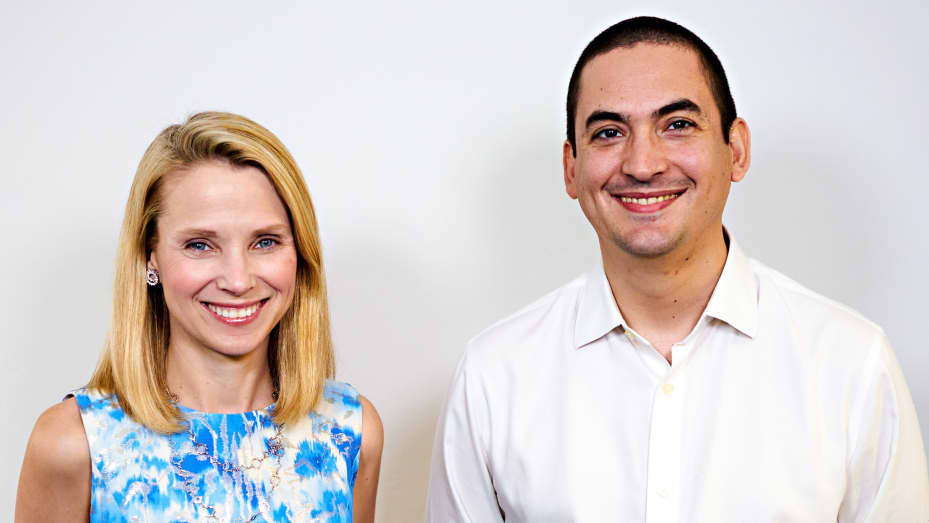
This article is more than
4 year old
Former Yahoo CEO Marissa Mayer on Wednesday announced the launch of Sunshine, a consumer software start-up that is debuting with an address book app that relies on artificial intelligence.
Sunshine is Mayer’s first venture and return to the spotlight since stepping down from her role as Yahoo chief executive after the company’s $4.48 billion sale to Verizon in 2017.
At launch, Mayer’s start-up is rolling out Sunshine Contacts, an address book app that relies on artificial intelligence to find and merge duplicate contacts, fill out incomplete information and continually keep that data up to date. The app integrates with the iOS Contacts app as well as Gmail and will be free to all iOS users with an invitation.
“The idea is that Sunshine Contacts basically becomes the brain that operates your contacts,” Mayer told CNBC. “Contacts, in our view, should be a living, changing thing.”
The app is also designed to make it easy to share your contact information with others, or keep that data updated for others. One feature, for example, allows users to change their contact info within the app and push it as an update to others who have their information and use Sunshine Contacts.
“As I’ve been working on contacts, some days I just get really upset and concerned that there are thousands of people out there who still have my Google email address or Yahoo email address,” said Mayer, before demonstrating the feature.

For Mayer, working on consumer apps is a return to form. Mayer built her reputation within the tech industry as a product leader during her tenure at Google.
That’s where in 2003 she met Enrique Munoz Torres, her Sunshine co-founder. There, the two collaborated on a number of projects, including iGoogle, a now-defunct Google product that allowed users to turn the Google website into a customized homepage for their browser. Mayer originally opposed the idea of iGoogle, but Torres’ presentation of the project sold her on it.
“I was the keeper of the Google homepage. It was my job to keep it clean, and Enrique got up and his idea was to just put a bunch of stuff on it, and he knew I would just be like ‘No,’” Mayer said. “The way he sometimes frames his arguments, it makes me think about things differently.”
Torres followed Mayer to Yahoo in 2013, serving as a senior vice president on search and ads. The two began to discuss the foundational ideas for Sunshine in their last year at Yahoo, Mayer said. They decided the ideas didn’t make sense at the time but could be worth revisiting.
The two left Yahoo when the sale to Verizon was completed in June 2017.
“Six months later Enrique called me and we got together and he was like ′ I’m still excited to start that company that we were talking about a year ago,′ and I was like, ‘I am, too,’” Mayer recalled.

The two have been working on Sunshine since 2018. The company is based in Palo, Alto, California, and has raised a $20 million seed round from inside and outside investors including Felicis Ventures, Unusual Ventures and WIN Ventures.
“Over the course of time, I’ve developed a tremendous amount of respect for Marissa as a product thinker and also Marissa as a person,” Torres said. “Working with Marissa brainstorming about this company and brainstorming about products in other places, the alignment was always very quick.”
Sunshine Contacts is the first in a suite of planned consumer apps. They aim for Sunshine to release apps focused on family sharing, scheduling, event organization and small group communication down the road. By making contacts better, Sunshine will create a foundation from which it can build other apps, Mayer said.
“We believe the issues with contacts are pervasive but a lot of people have learned to be content with the status quo,” Torres said. “That’s the class of problems we like to gravitate to.”
Mayer referred to these type of apps as “small-scale sharing,” saying that consumers have evolved over the last couple of years. They no longer want mega apps that take care of everything for them, but are open to having more apps that are really good at serving specific purposes, Mayer believes.
“The mega app that does everything for everyone is something that has become less appealing over time,” she said. “We want to have apps that take on specific problems.”
Consumers have also become more comfortable with paying for apps that provide them with value, Mayer said. Although Sunshine Contacts will be free at launch, Mayer envisions a freemium business model further on where users can pay for additional features within Sunshine apps.
Unlike most consumer tech companies, Sunshine vows not to make a business out of the data users store in its services.
“The data that you give us, you’re giving it to us for the purpose of improving your experience with the product,” Torres said. “We’re not going to be targeting advertising based on that data, we’re not going to sell it in aggregate form, in individual form, in any shape or form.”
He added, “We don’t think it’s reasonable to profit out of users’ data.”